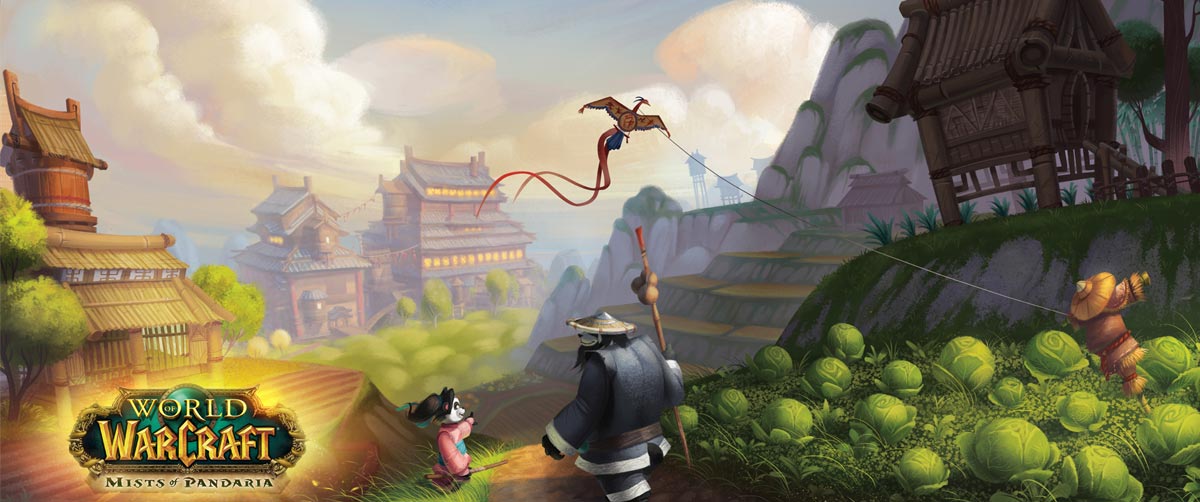Every once in awhile I run across someone asking “why doesn’t WoW have an eSports community?” And often it’s followed by a complete unawareness to the history of competitive WoW and remarks like “if we held WoW tournaments they could definitely be as popular as League of Legends and StarCraft 2!” Today I wanted to clarify why WoW isn’t an eSport and why you don’t find tournaments for it nowadays.
Note: I understand that there are WoW teams and tournaments, what we’re talking about is why WoW is barely ever mentioned in eSports or played at any major tournaments.
First, WoW has been played competitively. It used to be featured at Major League Gaming events and Blizzard has hosted tournaments for it at BlizzCon. MLG included it in their pro circuit from 2008-2010 and dumped tens of thousands of dollars of  prize money into it. BlizzCon has continued to include it in their events with last years World Championship (2012) having close to $200,000 in prize money. The problem in recent years is that there isn’t a consistent tournament schedule which severely deters players from pursuing a professional career. Of course that could be remedied if there were simply more tournaments. So how come there isn’t?
A very prominent argument against WoW is that it’s simply too complicated for eSports. Players have access to dozens of unique abilities that are spammed in quick succession making it far to difficult for spectators and commentators to keep track of what’s going on. This is a great point because the best eSports are ones that have successful commentary. StarCraft 2, League of Legends, and Dota 2 all have less abilities and thus more emphasis is placed on their use. Commentators can follow it closely and analyze whether or not it was a successful decision and how it will play out in the match. In WoW the abilities are used so quickly that commentary comes down to merely generalizations that become boring: “ok, he’s got a DoT, now he’s cleansing, here come the heals, now they’re returning damage…” This may sound fine at first, but would get highly repetitive match after match. The alternative of course being that if abilities were used more slowly, commentators could remark on the actual decisions: “incoming DoT is corruption, cleanse is used, incoming heal is lay on hands, ooh I don’t think he should have used that there, instead he should have buffed him with divine protection and used flash of light, that would have been more economical, now he’s going to have trouble…” But since abilities move too quickly, commentators aren’t able to delve deeply into the strategy that’s going on.
The above point should be distinguished from another similar argument: “WoW is too complicated for eSports in reference to the actual amount of abilities”. This is something I completely disagree with. StarCraft 2, Dota 2, and League of Legends all require a high level of understanding to properly interpret what you’re seeing. This argument neglects to realize the actual computations. WoW arena always had specific team compositions that were more powerful than others (like tiers in fighting games). Out of the 11 classes, high level arena play would use maybe 3-4 of the classes. Each class has 20-30 unique abilities, but only a handful are used regularly. That’s a max of 120 items to remember, and probably closer to 60. League of Legends on the other hand has over 100 champions, of which roughly 20 are used regularly. Each has 4 abilities that are always used with 6 items that are always used. But the same 6 items aren’t selected by everyone, meaning that there are dozens of items you would need to memorize. So there are approximately 200 items and let’s say only 50 of them are used on a regular basis. That’s 20*4+50 = 130 items to memorize. Millions of League of Legends fans have done this easily. The argument that WoW is simply too complicated to understand only hinges on the fact that things happen so quickly, not that there are too many abilities.
Note: you may argue that I didn’t include gear which would add a new level of complexity, but this really isn’t the case because in professional WoW tournaments, gear is open for players to select before the match. This negates their effect because players already know what to select. It’s not a decision they have to make on the field based on what’s happening, and thus it’s need for memorization is negligible.
“The game is too old.” This argument is immediately dismissed when you consider that Brood War, DotA, and Counter-Strike 1.6 have been played for around a decade each, even when new “fancier” titles were released to replace them. If WoW was a good eSport, people would play it regardless of the graphics or age.
“There’s no developer support.” That’s always a valid point to consider, but it hinges on the reception they receive from the competitive community. I would imagine Blizzard learned everything they needed to know in the few years of running WoW tournaments with BlizzCon and MLG. It clearly didn’t pan out like other titles and died for a reason. Developer support is important, but only if people are going to play your game. For example, look at ShootMania: Storm right now, there is strong developer support, but the competitive community isn’t really picking it up. Of course that doesn’t mean that smaller niche communities aren’t important. One of the coolest aspects of eSports is all the small communities centered around less popular titles like WoW, Quake Live, and Enemy Territory.
“Gear requirements are a problem.” This argument differs from above and actually is a problem in my opinion. The core game requires non-professional players to work for their PvP gear as opposed to a game like Guild Wars that offered a mode with all gear unlocked. This is problematic because it places a large barrier at the beginning of your competitive career. And we clearly see this because only a small percentage of WoW players bother with arena. They realize the time and effort necessary to earn the gear and thus don’t bother competing.
“WoW arena is boring to watch.” This is sadly one of the primary problems plaguing competitive WoW. While you may argue that “boring” is a subjective term, companies disagree and instead look at numbers and measure ROI. WoW never had impressive turnout at MLG events compared to other titles and when considering that a different more popular title could replace it for the same cost, the decision is simple. People found it boring and hard to spectate and it was reflected in the numbers. A great example of why it’s boring, as mentioned above in the abilities section, is the difference between MOBA/RTS abilities and MMO abilities. Because there are so many used in rapid succession it leads to a “watering down” effect, which diminishes the noteworthiness of each used ability. Whereas when you have less abilities used more sparingly, it is exciting and critical to time their use accurately. The strategy is deeper and more apparent.
Lastly, balancing isn’t handled in the right context, and this is the real killer and ultimate reason why WoW isn’t played competitively. Since MMO’s have a variety of different environments, Blizzard is forced to balance across the board, rather than focusing on an individual category. PvE, raiding, arenas, battlegrounds, and world PvP all require different ways to balance properly because they utilize different variables. But since there isn’t separate balancing changes for each, we are fed blanket balance changes that attempts to satisfy them all at a mediocre level. Add on top of this the fact that Blizzard is constantly patching the game, and you have a competitive community that cannot train and perfect their skills. This completely destroys any chance of forming top tier talent and thus any real competitive community. Until this aspect of the game is remedied, WoW will never be an eSport.
Secret last point: I almost forgot to mention random crits. The fact that players can random crit one another for high amounts of damage and not respawn is another serious flaw in competitive game design. The best eSports titles avoid or eliminate any random chance since randomness impedes skill.

